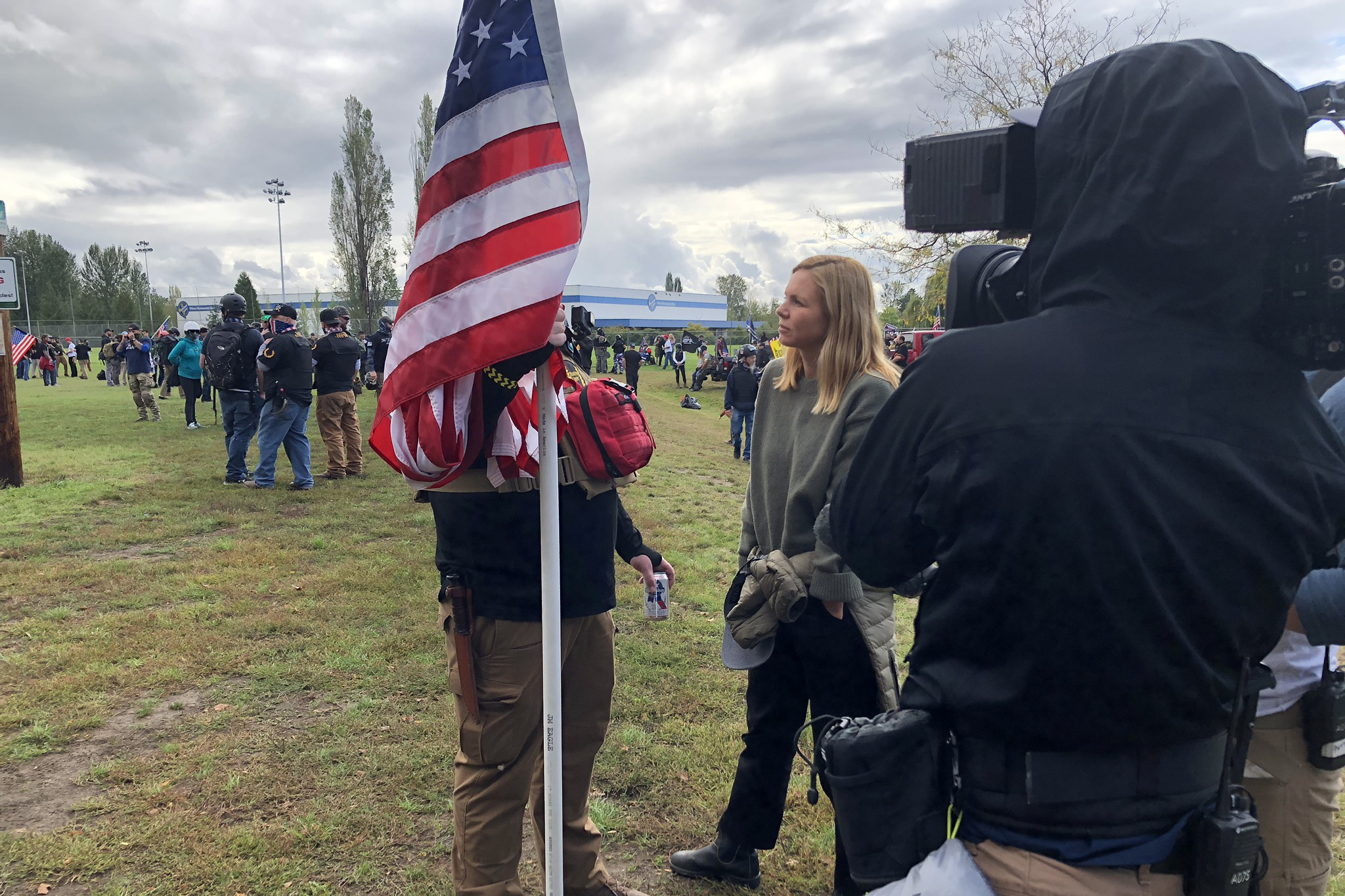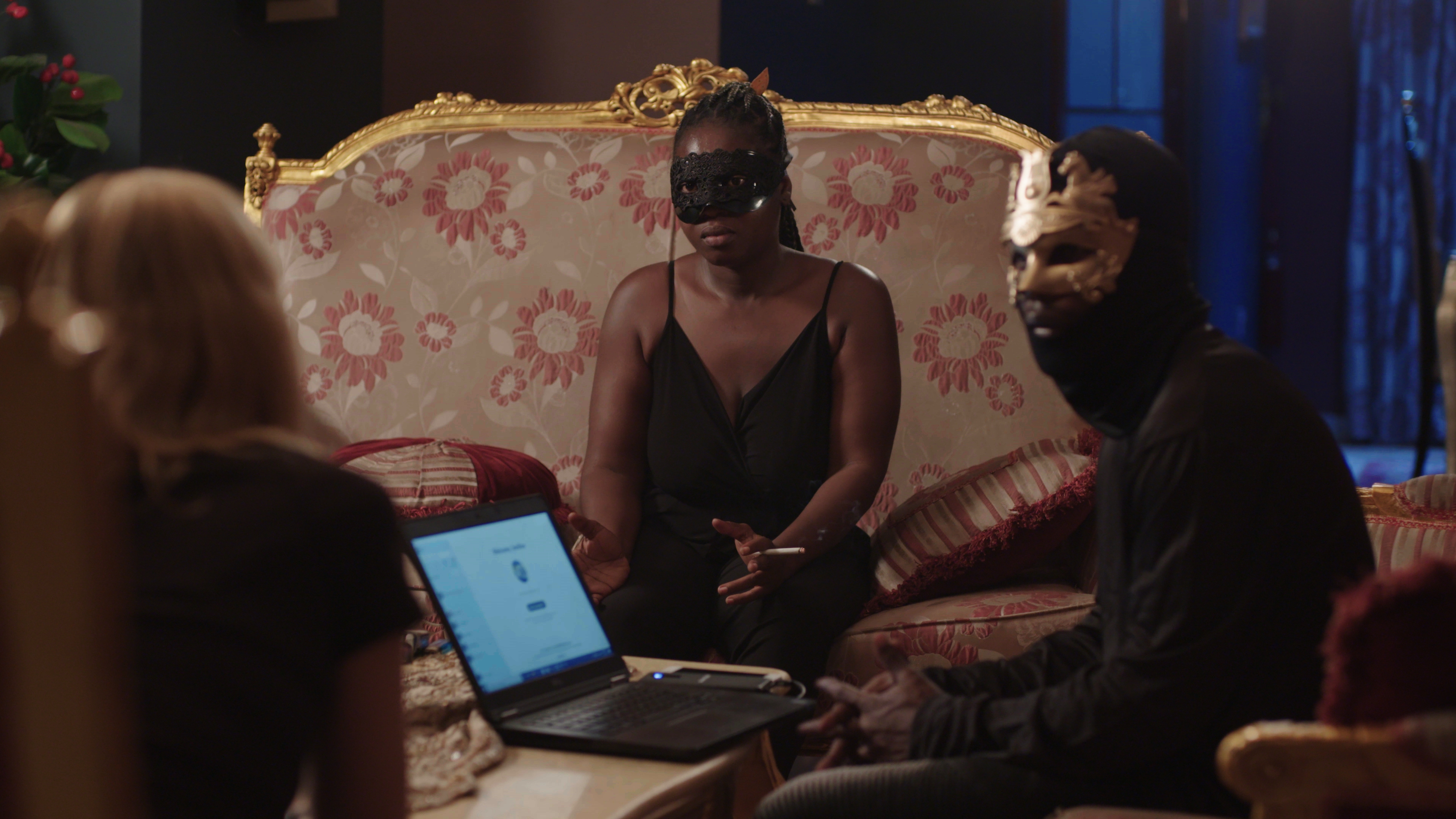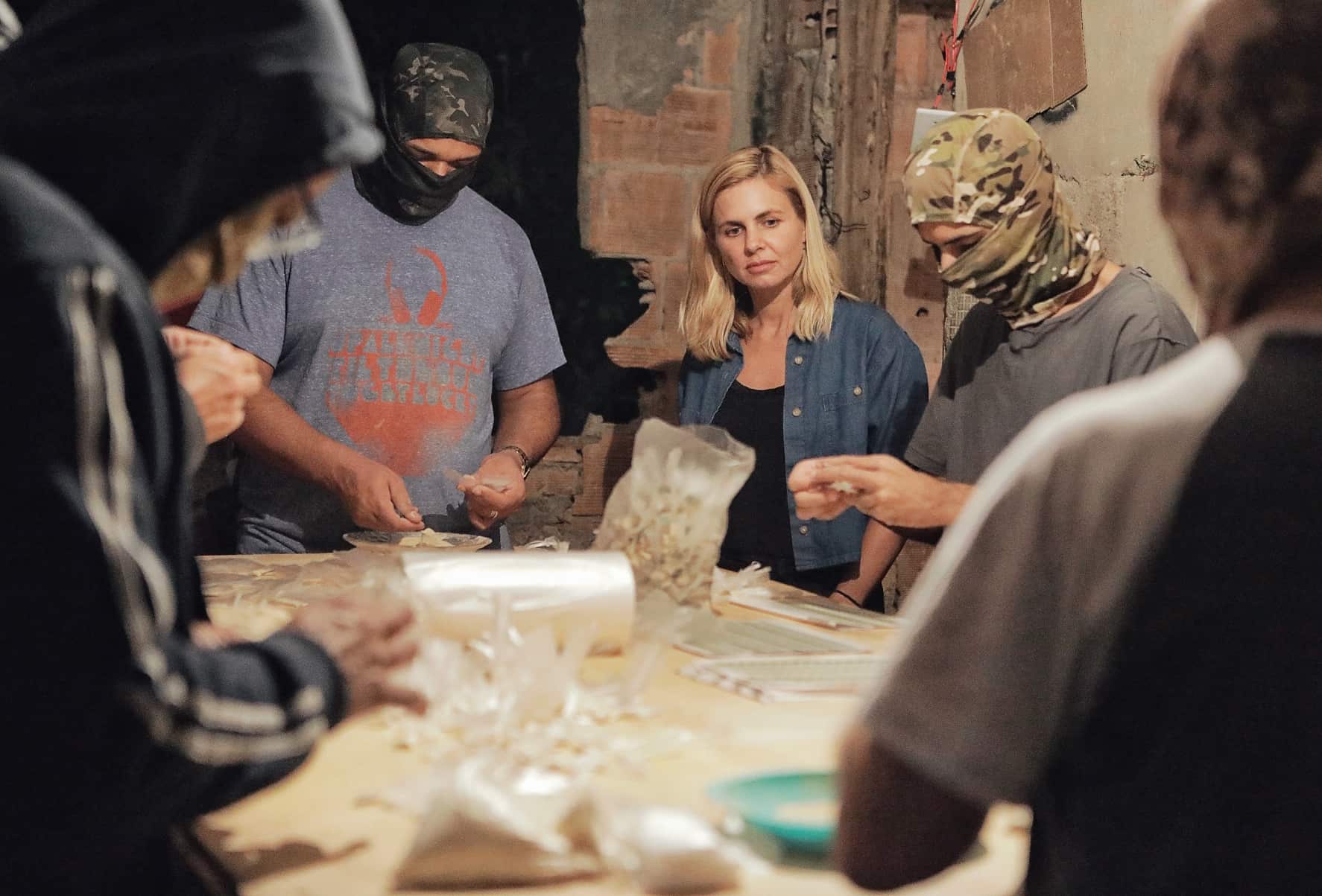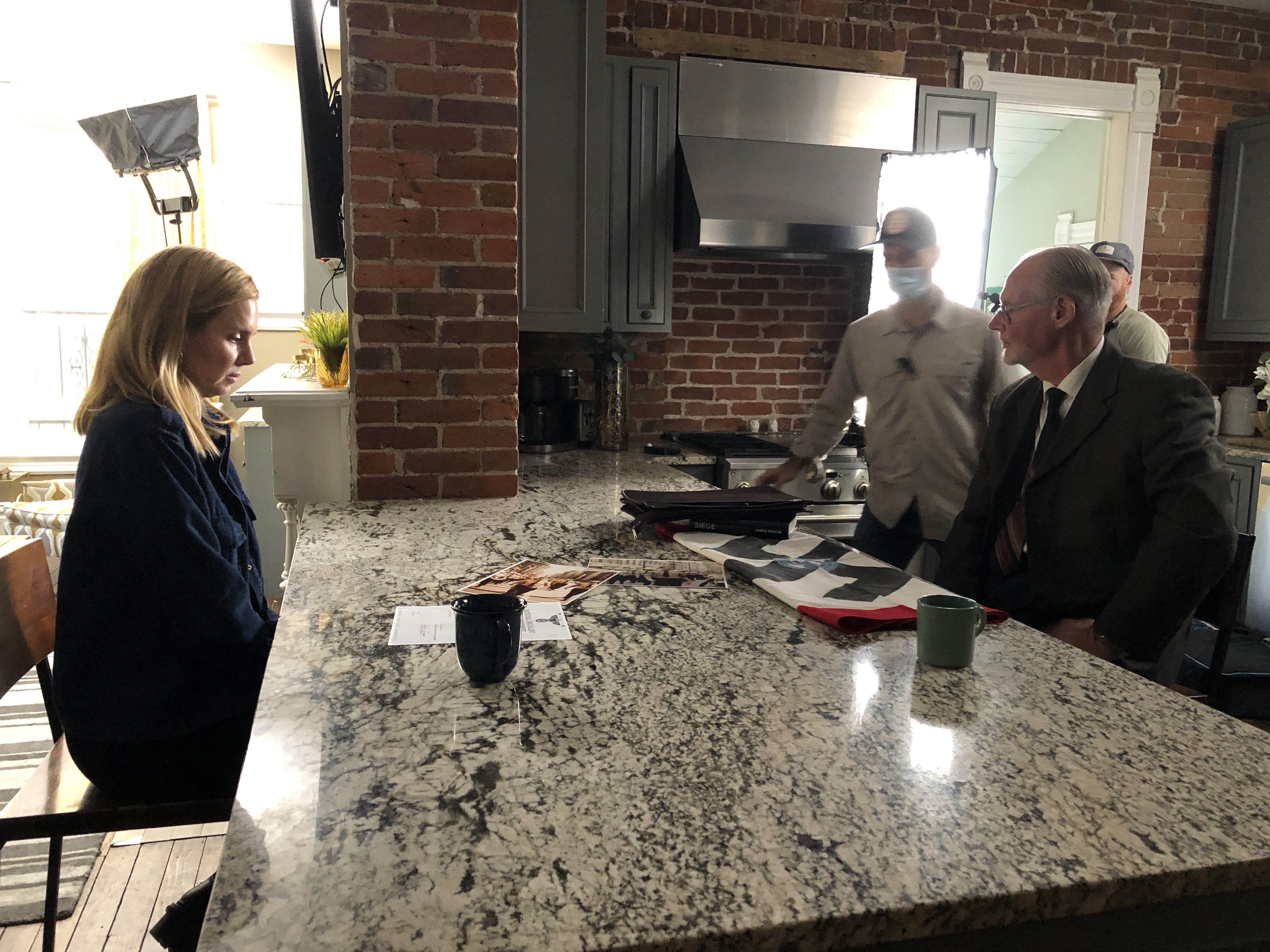Somewhat unobjective opinion: Trafficked with Mariana van Zeller is one of our favourite documentaries. It not only shines the light on the black market industries, but also highlights the stories of people involved in them.
We’re so used to seeing those involved in black market as criminals and only that so it’s quite interesting to hear their stories and see them as humans and just a part of something illegal.
Combine that with getting a closer look at the ingenious ways the black market operates, the show is sure to hook viewers.
Season two of ‘Trafficked with Mariana van Zaller’ is out and we managed to catch up with the journalist to find out more about what’s in store, shooting during pandemic and other topics.
The second season of the show has many episodes that highlight the usual black market activities one would expect but there were some that made us go “huh?”.
“White Supremacy” is one such episode. What is something that you’d think of as hate crime doing in a show about black market?
Mariana explained that it was a subject matter she’s reported on before in the course of her career and one that she’s very passionate about.
“We all know that white supremacy attacks are on the rise around the world. I started reading little snippets about how some groups were connected to groups in Ukraine and how the shooter in New Zealand, at the New Zealand mosque, had sort of inspired the shooter in El Paso.
“So I brought it up with my team. We started looking at it and realised that actually, these groups, and these individuals are all connected, and they operate pretty much like a trafficking network,” Mariana shared.
The episode highlights how these groups share ideas, knowledge and even military training.
“Instead of putting drugs in people's bodies, or guns in people's hands, they're putting hateful ideology in people's heads,” she said.
She added that she was very proud of the team for coming up with a season that went “deeper” and “wider” not-so-obvious black market activities and during a global pandemic.

One of the first things the Trafficked team noticed when they started shooting was the sudden boom in the black market industries.
This comes as no surprise since a lot of people lost their jobs during the pandemic and were pushed to survive by hook or crook.
The show started filming in June 2020, three months after the first lockdown in most of the world.
“It was insane to see how there had been an explosion in black markets in just those three months had been. And it continued exploding and rising since.
“Whenever there's an economic downturn, and people have a hard time finding ways to bring money and food back to their families, they turn to black markets, that's what's happened,” Mariana shared.
One of the episodes was on ‘romance scammers’, a black market trend that was an answer to lonely people trying to navigate the pandemic and isolation.
New black market trends grew from the pandemic itself, from vaccination to masks, the businesses that boomed legally also bloomed in the black market. But that wasn’t all, traditional black market activities also saw a rise.
“It made us really see that it was more relevant than ever to do a show like ‘Trafficked’ right now,” Mariana shared.
Mariana and her team go to some of the most dangerous places in the world and meet people whose lives are filled with danger and violence.
Despite believing in the idea that “no story is worth a life” and taking necessary precautions, the nature of the kind of stories the team covers means that they do have close brushes with dangerous situations.
One such incident that the team faced during the filming of season two was when a rival team was mounting an attack against a drug gang Mariana and team were interviewing las jefas (lady bosses) in Colombia for the ‘Cocaine Queens’ episode.
“Finally, after many months, we finally were allowed to go into her compound and to meet her in person. We'd been talking to her for minutes and suddenly she's surrounded by bodyguards, armed bodyguards with AK 47s and they grab her and take her into a safe space.
“They start yelling at us ‘leave’, saying it's not safe. It's not safe because they were about to be ambushed by a rival group,” Mariana recounted.
The team and Mariana managed to escape unscathed, but they heard gunshots as they were making their escape.
They later found out that the las jefas and her people were safe.
“My concern was not only for myself and my team, but also for them because they had opened their doors to us. You might disagree with what they do but you're always thankful that they've allowed you into their lives,” Mariana said.

Mariana has made “empathy first, judgement later”, a tenant of the kind of journalism she does and this is obvious when you watch ‘Trafficked with Mariana van Zeller’ but it isn’t always easy or without its downside.
“It usually opens doors for me, and it really helps people to share their stories. But in the case of white supremacy, it's really hard to find any empathy towards people who have just so much hate and intolerance and who are openly inciting violence, and to want to see a race war coming.
“It was hard, but my job there was to stay calm. I wanted to leave the room and get out of there as soon as possible but my job there is to tell the larger story and use myself and the show as a vehicle to sort of raise awareness.
“This is happening, people like this exist, and they're planning. They're actively planning for attacks in the United States and abroad,” she said.
How does one deal with the emotional impact that comes from covering such heavy topics with empathy?
“The joke is, I keep on drinking. It’s a joke!” Mariana said with a laugh, adding that she pours herself into her work and leans on her family; both at home and at work.
“One of the things that I make mandatory on every shoot is that at the end of the day, if we have time, I want everybody to get together for dinner or drink, where we can all talk about what happened that day and what we witnessed. It helps with the story. But it also really helps. It's our little mini field therapy session,” she shared.
She also said that her husband, who is also a journalist, understands her so she is able to pour out all that has happened and her feelings, which helps.
‘Trafficked With Mariana Van Zeller S2’ premieres on Friday, February 18 at 11pm on National Geographic Channel (Astro CH551).
Don’t forget to mark your calendars!
ALL IMAGES COURTESY OF NATIONAL GEOGRAPHIC
We’re so used to seeing those involved in black market as criminals and only that so it’s quite interesting to hear their stories and see them as humans and just a part of something illegal.
Combine that with getting a closer look at the ingenious ways the black market operates, the show is sure to hook viewers.
Season two of ‘Trafficked with Mariana van Zaller’ is out and we managed to catch up with the journalist to find out more about what’s in store, shooting during pandemic and other topics.
Going “deeper” and “wider”

The second season of the show has many episodes that highlight the usual black market activities one would expect but there were some that made us go “huh?”.
“White Supremacy” is one such episode. What is something that you’d think of as hate crime doing in a show about black market?
Mariana explained that it was a subject matter she’s reported on before in the course of her career and one that she’s very passionate about.
“We all know that white supremacy attacks are on the rise around the world. I started reading little snippets about how some groups were connected to groups in Ukraine and how the shooter in New Zealand, at the New Zealand mosque, had sort of inspired the shooter in El Paso.
“So I brought it up with my team. We started looking at it and realised that actually, these groups, and these individuals are all connected, and they operate pretty much like a trafficking network,” Mariana shared.
The episode highlights how these groups share ideas, knowledge and even military training.
“Instead of putting drugs in people's bodies, or guns in people's hands, they're putting hateful ideology in people's heads,” she said.
She added that she was very proud of the team for coming up with a season that went “deeper” and “wider” not-so-obvious black market activities and during a global pandemic.
The booming black market businesses

One of the first things the Trafficked team noticed when they started shooting was the sudden boom in the black market industries.
This comes as no surprise since a lot of people lost their jobs during the pandemic and were pushed to survive by hook or crook.
The show started filming in June 2020, three months after the first lockdown in most of the world.
“It was insane to see how there had been an explosion in black markets in just those three months had been. And it continued exploding and rising since.
“Whenever there's an economic downturn, and people have a hard time finding ways to bring money and food back to their families, they turn to black markets, that's what's happened,” Mariana shared.
One of the episodes was on ‘romance scammers’, a black market trend that was an answer to lonely people trying to navigate the pandemic and isolation.
New black market trends grew from the pandemic itself, from vaccination to masks, the businesses that boomed legally also bloomed in the black market. But that wasn’t all, traditional black market activities also saw a rise.
“It made us really see that it was more relevant than ever to do a show like ‘Trafficked’ right now,” Mariana shared.
Looking danger in the eye

Mariana and her team go to some of the most dangerous places in the world and meet people whose lives are filled with danger and violence.
Despite believing in the idea that “no story is worth a life” and taking necessary precautions, the nature of the kind of stories the team covers means that they do have close brushes with dangerous situations.
One such incident that the team faced during the filming of season two was when a rival team was mounting an attack against a drug gang Mariana and team were interviewing las jefas (lady bosses) in Colombia for the ‘Cocaine Queens’ episode.
“Finally, after many months, we finally were allowed to go into her compound and to meet her in person. We'd been talking to her for minutes and suddenly she's surrounded by bodyguards, armed bodyguards with AK 47s and they grab her and take her into a safe space.
“They start yelling at us ‘leave’, saying it's not safe. It's not safe because they were about to be ambushed by a rival group,” Mariana recounted.
The team and Mariana managed to escape unscathed, but they heard gunshots as they were making their escape.
They later found out that the las jefas and her people were safe.
“My concern was not only for myself and my team, but also for them because they had opened their doors to us. You might disagree with what they do but you're always thankful that they've allowed you into their lives,” Mariana said.
Maintaining composure, practising empathy, and taking care of mental health

Mariana has made “empathy first, judgement later”, a tenant of the kind of journalism she does and this is obvious when you watch ‘Trafficked with Mariana van Zeller’ but it isn’t always easy or without its downside.
“It usually opens doors for me, and it really helps people to share their stories. But in the case of white supremacy, it's really hard to find any empathy towards people who have just so much hate and intolerance and who are openly inciting violence, and to want to see a race war coming.
“It was hard, but my job there was to stay calm. I wanted to leave the room and get out of there as soon as possible but my job there is to tell the larger story and use myself and the show as a vehicle to sort of raise awareness.
“This is happening, people like this exist, and they're planning. They're actively planning for attacks in the United States and abroad,” she said.
How does one deal with the emotional impact that comes from covering such heavy topics with empathy?
“The joke is, I keep on drinking. It’s a joke!” Mariana said with a laugh, adding that she pours herself into her work and leans on her family; both at home and at work.
“One of the things that I make mandatory on every shoot is that at the end of the day, if we have time, I want everybody to get together for dinner or drink, where we can all talk about what happened that day and what we witnessed. It helps with the story. But it also really helps. It's our little mini field therapy session,” she shared.
She also said that her husband, who is also a journalist, understands her so she is able to pour out all that has happened and her feelings, which helps.
Catch season 2 of ‘Trafficked with Mariana van Zeller’ on National Geographic
‘Trafficked With Mariana Van Zeller S2’ premieres on Friday, February 18 at 11pm on National Geographic Channel (Astro CH551).
Don’t forget to mark your calendars!
ALL IMAGES COURTESY OF NATIONAL GEOGRAPHIC






